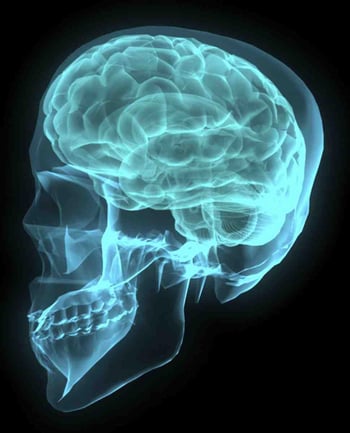The Alzheimer’s Clinical Trail Consortium (ACTC), led by research teams from the University of Southern California, San Diego, Harvard, and Mayo Clinic, was developed to accelerate research in Alzheimer’s and related neurodegenerative diseases. The University of Southern California has been awarded $13.98M from the National Institute on Aging (NIA), a branch of the National Institute of Health (NIH), who is leading the federal effort in this specialized field of research. The consortium’s objective is to find new and successful ways to treat and prevent this disorder, with support expected to total nearly $70 million over a five-year period. Additionally, another $19.8 million in funding has recently been awarded to the University of Southern California for other research projects related to Alzheimer’s disease and other related dementias.
Read MoreTags: USC Science, USC, Alzheimer' Research, Alzheimer's Disease, Keck School of Medicine, ACTC
For the 2016 fiscal year budget, and Congress increased government funding on research for Alzheimer's by $350 million. That was a 50% increase over the previous year. The Alzheimer’s Association estimates that the National Institutes of Health would need $2 billion a year to maximize the chances of curing or preventing the disease by 2025. This year’s increase puts the NIH on track to reach that goal. Alzheimer's Disease is the most common form of dementia and this increased science research funding it is already beginning to pay off.
Read MoreTags: biomedical sciences, Bioresearch funding, Alzheimer's Research, Alzheimer' Research, Rutgers University, Rutgers, BioResearch Product Faire, dementia research, Biotechnology trade show
Washington University School of Medicine in St. Louis is leading an international team studying potential treatments to prevent Alzheimer’s disease. The team recently added a third medicationin this worldwide clinical trial that is already underway. According to the WU School of Medicine news site, the latest investigational drug “is designed to lower production of amyloid beta, a protein that clumps together into plaques damaging neurons in the brain, leading to memory loss, cognitive problems and confusion.”
Read MoreTags: Washington University St. Louis, Washington University, WUSTL, Alzheimer' Research, Alzheimer’s, Research Funding, biotech vendor show, Alzheimer's treatment market, Bioresearch Grant, Biotechnology trade show
The National Institute of Aging has awarded a five year, $10.3 million grant to the University of Arizona, Tucson to fund research on why women are more susceptible to developing Alzheimer's Disease than men are. Lead researcher Dr. Roberta Diaz Brinton will be collaborating with other UA investigators, as well as with researchers at the University of Southern California with specialties including; neuroimaging and informatics, pharmacology, gerontology, and neuroradiology.
-MRI-1.png?width=248&name=Cerebral_amyloid_angiopathy_(CAA)-MRI-1.png)
(Image of brain affected byAlzheimer's courtesy of Wikimedia Commons)
Read MoreTags: Bioresearch funding, Biotechnology vendor show, University of Arizona Tucson Research, Alzheimer' Research, University of Arizona Tucson, UA
 Six teams of researchers from leading univerisites are going to receive a set of three-year grants, totaling over $7.5 million, to create lab-grown brain cells in a process called neuronal maturation.
Six teams of researchers from leading univerisites are going to receive a set of three-year grants, totaling over $7.5 million, to create lab-grown brain cells in a process called neuronal maturation.
The funding to the various universities was made possible by The Paul G. Allen Family Foundation as part of its Allen Distinguished Investigator grants, and will ensure the continued development of important neuroscience research.
Read MoreTags: CA, Harvard University, Washington, Parkinson's Disease Research, California, brain research, 2015, Alzheimer' Research, LAVS, Neuroscience, BioResearch Product Faire Event, Research Funding, Harvard, UCSF, longwood, Biotechnology Vendor Showcase Event, best lab supply tradeshows, best science tradeshows
Biomedical science researchers have worked tirelessly at the University of California, Riverside since the discovery of a crucial link involving mice, humans, and Alzheimer's disease. Back in 2006, UCR researchers, in a collaborative effort with the University of South Florida, discovered an interesting connection between the immune system and Alzheimer's disease while experimenting on lab mice. Professor Douglas Ethell, the assistant professor of Biomedical Sciences at UCR, along with the USF's own Professor Gary Arendash of the Johnnie B. Byrd Institute, was instrumental in this find.
Tags: CA, Bioscience research, biomedical sciences, biomedical research, Bioresearch, Southwest, 2012, Alzheimer' Research, BioResearch Product Faire Event, Research, Riverside, UC Riverside, UCR
New research from Columbia University’s Taub Institute for Research on Alzheimer’s Disease and the Aging Brain shows that silent strokes may be the cause of memory loss in aging people. Dr. Adam M. Brickman, Ph.D. and Herbert Irving Assistant Professor of Neuropsychology at Columbia University College of Physicians and Surgeons, told Neurology that what’s new about his research is that it “examines silent strokes and hippocampal shrinkage simultaneously.” In the past, experts believed memory loss in the elderly was a result of deterioration in the hippocampus. While there’s truth in this logic, Dr. Brickman says that silent strokes (strokes so small they may go unnoticed) also contribute to the problem of memory loss in older people.
Tags: Northeast, New York, Columbia University, Alzheimer' Research, Neuroscience, New York City
 Results of two Alzheimer's research studies from Washington University in St. Louis (WUSTL) have been published in the past month, adding significant new information to our understanding of the disease and how it functions.
Results of two Alzheimer's research studies from Washington University in St. Louis (WUSTL) have been published in the past month, adding significant new information to our understanding of the disease and how it functions.
Tags: Midwest, Washington University, Missouri, National Inst on Aging (NIA), Alzheimer' Research, St Louis

